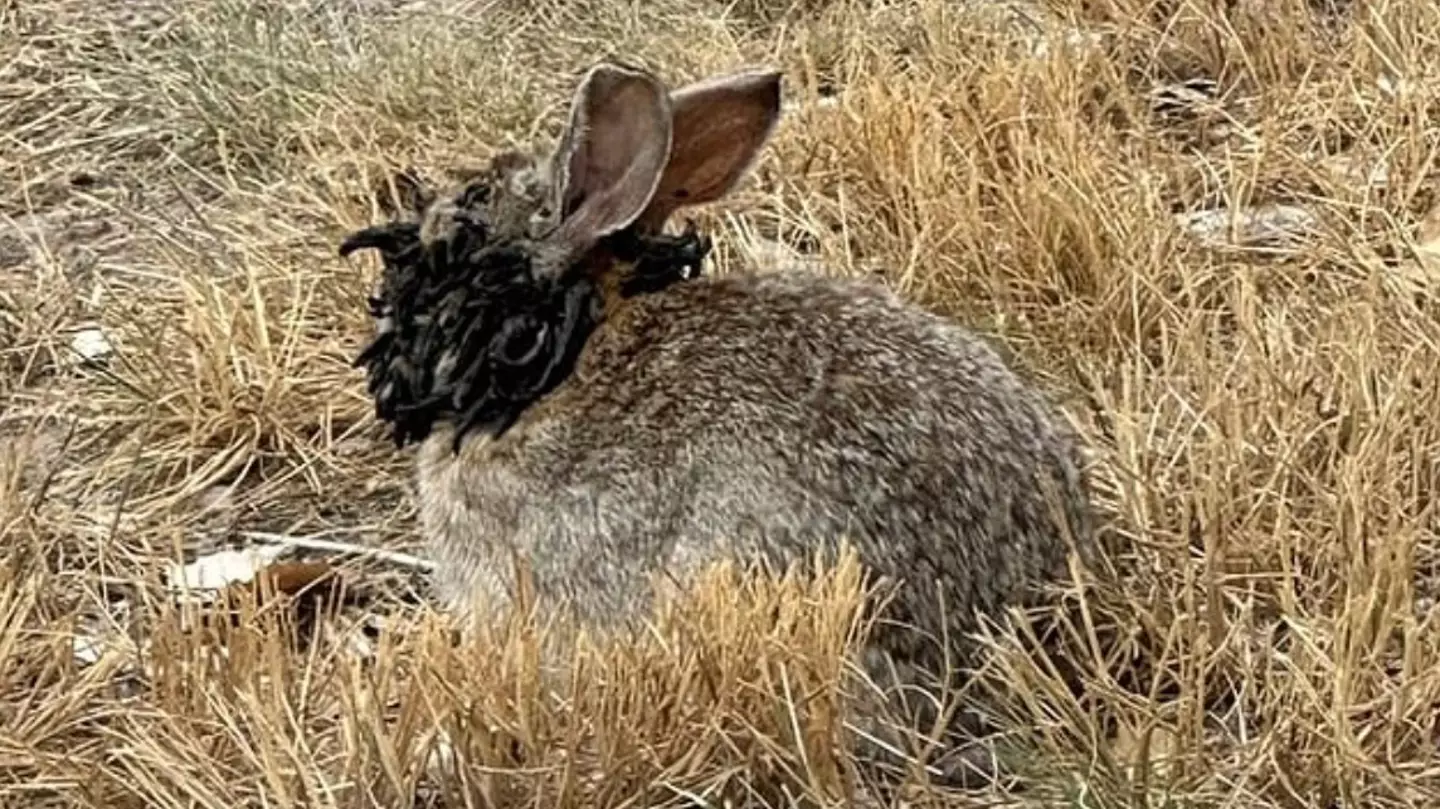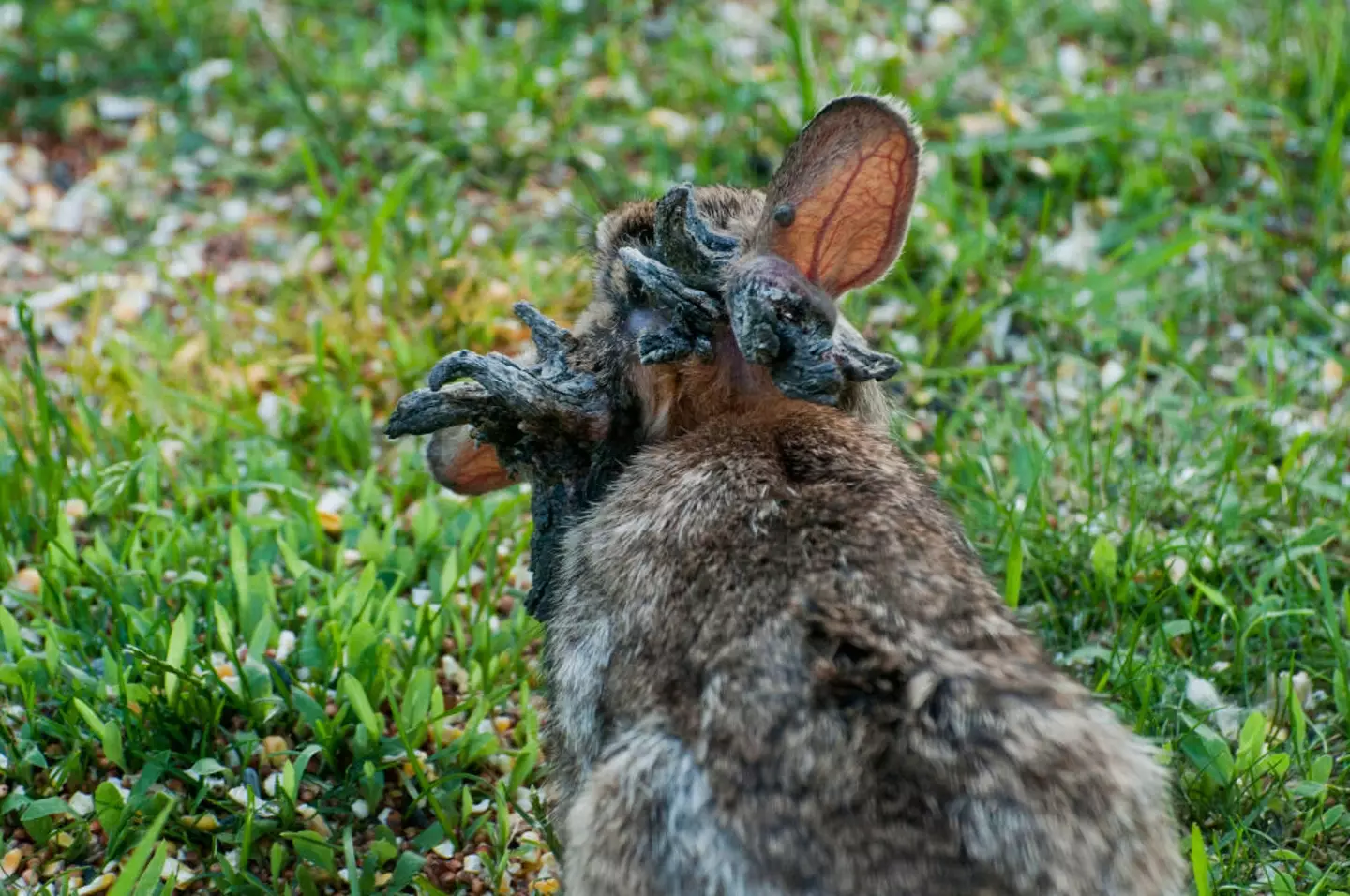
As the city of Fort Collins, Colorado, reckons with a bunch of sickening mutated rabbits, Dr. Sean McCormack has a warning for all pet owners in the area.
Incase you missed the news - you're the lucky ones, frankly - the cottontail papilloma virus (CRPV) is currently making its way through the wild rabbit population in Fort Collins, turning these big-eared beauties into alien caricatures thanks to face-covering tumours.
Researchers have suggested that the 'Frankenstein' variations may spread across the Midwest; the virus carried by mosquitoes and ticks which bite the infected ones and pass on to unsuspecting bunnies.
In a UNILAD exclusive, veterinarian McCormack, who boasts over 14,000 followers on his Instagram page, provided some guidance for locals to adhere to if they want to keep their pets safe.
Advert

Asked what measures rabbit owners can take to protect their beloved furballs from the virus, he stated: "This virus is spread via biting insects like midges and mosquitos as well as by ticks. So it can be difficult to prevent infection in pet rabbits with access to the outdoors.
"Even indoor rabbits could also get infected with flying insects coming into the home, so mosquito repellents or traps and door fly screens are a good idea in the home to prevent exposure to biting insects."
McCormack went on to point out how 'direct exposure to infected rabbits can also lead to infection, so if you suspect one of your rabbits is affected, temporary isolation is advised until a vet visit confirms whether cottontail rabbit papillomavirus (CRPV) is suspected'.
"If you live in an endemic area where wild rabbits are affected then the risk is higher with outdoor pet rabbits, so contact with wild rabbits must be prevented, ideally by rabbit-proof fencing your entire property.
"Unfortunately there is no vaccine currently for the disease, and it is treated symptomatically when it occurs, usually by surgical removal of the tumours it can cause.
"Fly and tick prevention products that are safe for rabbits can be prescribed by your vet if you live in an endemic area, and are a good idea to use on outdoor rabbits during the summer when the risk is highest," he added.

Meanwhile, we also quizzed the vet on any initial warning signs pertaining to the cottontail papilloma virus.
"Usually we see red, raised, rough skin lesions about 1cm in diameter," noted McCormack. "They can occur anywhere on the body, but are most often around the head and neck region, particularly around the eyes, ears, nose and mouth."
These lesions then transform into the dark, keratin-made horns visible in the pictures.
"It’s important to say that CRPV has not been found in the UK or Europe, it is a disease of North American wild rabbit species like Cottontails and Brush rabbits that can infect domestic rabbits too," he also mentioned.
As for what pet owners should do if their rabbit appears to be infected, McCormack's best advice was immediate isolation.
"Get to a vet as soon as possible for a check-up, preferably a rabbit savvy vet (as some are more experienced with small domestic pets than others)," he suggested.
"If CRPV is suspected, they will likely want to do a biopsy to determine this for certain. The earlier this disease is detected, the better the potential outcome, as with many pet health issues."
